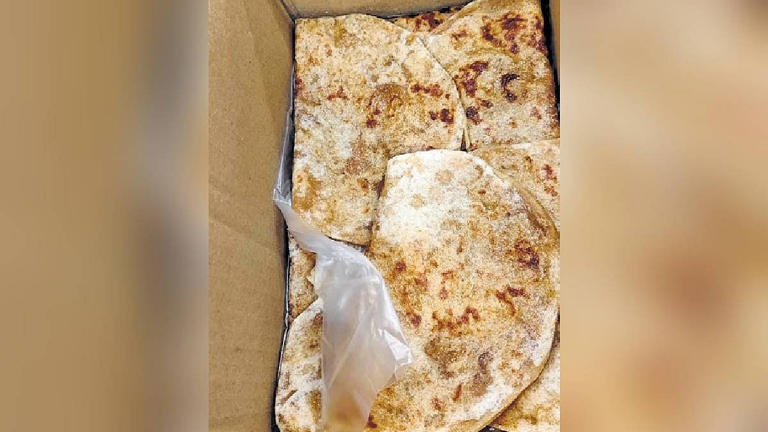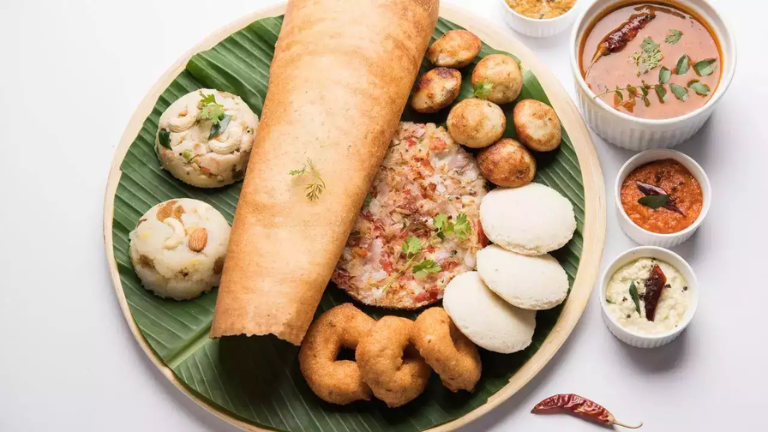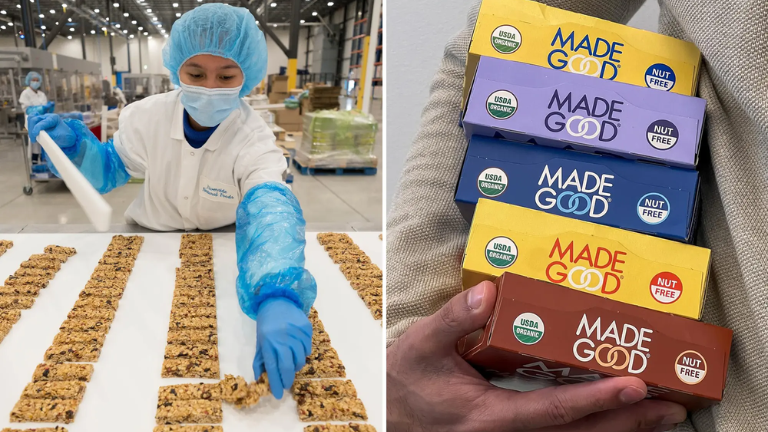FDA Flags Plastic Use in Holige Preparation; Detects Adulterated Jaggery Ahead of Ugadi
Traditional Sweet Under Scrutiny as Food Safety Department Issues Warnings
With Ugadi just around the corner, the festival favorite holige (obbattu or puran poli) has come under strict scrutiny from the Food Safety and Drug Administration Department (FDA).
Authorities have flagged the Plastic Use in Holige Preparation, a practice that could pose serious health risks to consumers. Additionally, adulterated jaggery—one of the main ingredients in holige—has also been found in multiple samples tested across Karnataka.
With these findings, the FDA has launched a crackdown on food vendors, issuing notices to several shops in Bengaluru, Mysuru, and other parts of the state to eliminate unsafe food preparation practices.
“We have already banned plastic sheets for making idlis. Now, we are taking strict measures to eliminate Plastic Use in Holige Preparation,” said an FDA official.
Why is Plastic Use in Holige Preparation a Major Concern?
📌 Plastic Contamination in Food
FDA officials have warned that many holige vendors across Karnataka are using single-use plastic sheets—especially those commonly used for milk and oil packaging—to prepare and store the sweet.
How is Plastic Used in Holige Preparation?
✔ Vendors roll out holige on these plastic sheets and place them directly on hot pans or tawas until the plastic separates from the sweet.
✔ After cooking, the holige is immediately placed on polythene sheets to prevent it from sticking.
✔ When heated, these plastic sheets release toxic chemicals that can seep into the food.
“Plastic Use in Holige Preparation is extremely dangerous because heating plastic releases harmful toxins that directly enter the food,” said an FDA expert.
What Happens When Plastic is Heated?
When single-use plastic is exposed to high temperatures, it melts and releases harmful chemicals into the food. These include:
🚨 Phthalates – Chemicals that can disrupt hormones and fertility.
🚨 Bisphenols (BPA, BPS) – Known to cause hormonal imbalances and metabolic disorders.
🚨 Dioxins – Carcinogenic chemicals linked to cancer and immune system damage.
“Long-term exposure to these chemicals can lead to serious health risks, including reproductive problems, metabolic disorders, and even an increased risk of cancer,” an FDA official stated.
Despite repeated warnings, Plastic Use in Holige Preparation remains widespread due to vendor convenience and cost-cutting measures.
Jaggery Adulteration: A Hidden Danger in Traditional Sweets
Apart from the Plastic Use in Holige Preparation, the FDA has also detected adulterated jaggery, which is a key ingredient in holige fillings.
📌 What Did the FDA Find in Jaggery Samples?
✔ Washing soda and chalk powder – Used to increase the volume of jaggery.
✔ Metanil yellow – An artificial food coloring banned in edible products.
🚨 Why is This Dangerous?
✔ Metanil yellow is a non-permitted food dye that can cause neurological disorders, abdominal pain, and hyperactivity in children.
✔ Washing soda and chalk powder are non-food-grade additives that can lead to digestive issues, kidney damage, and mineral imbalances.
How Does This Affect Holige?
Since jaggery is used in large quantities in holige, consuming adulterated jaggery poses significant health risks, particularly for children and elderly individuals who are more vulnerable to toxic substances.
“Our inspections have just begun, and a detailed sample collection is ongoing. More enforcement actions will follow soon,” said the FDA official.
Government Action: Crackdown on Unsafe Food Practices
📌 What Steps Has the FDA Taken So Far?
✔ Issued improvement notices to multiple shops in Bengaluru, Mysuru, and other districts.
✔ Banned Plastic Use in Holige Preparation across various sectors.
✔ Conducted raids and sample testing to detect food adulteration.
✔ Planning more surprise inspections before Ugadi to ensure food safety.
“Vendors must comply with safety standards, or strict action will be taken,” officials warned.
The FDA is also urging consumers to be vigilant and report any suspicious food practices.
How Consumers Can Stay Safe This Ugadi
🚨 Avoid Purchasing Holige from Unverified Vendors
✔ Buy from reputed sweet shops or prepare it at home.
🚨 Check for Signs of Adulterated Jaggery
✔ Natural jaggery has a light brown to dark brown color.
✔ Bright yellow or overly golden jaggery might be artificially colored.
✔ If jaggery has a chalky texture, it might contain washing soda.
🚨 Avoid Holige Wrapped in Plastic Sheets
✔ If you notice Plastic Use in Holige Preparation, avoid buying it.
🚨 Demand Transparency from Vendors
✔ Ask vendors whether they use chemical-free jaggery and safe packaging methods.
Final Thoughts: Ensuring a Safe and Healthy Festive Season
Ugadi is a time of celebration, and holige holds a special place in festive traditions. However, with the rise in unsafe food practices, it is crucial to prioritize health over convenience.
✔ The FDA’s crackdown on Plastic Use in Holige Preparation and food adulteration is a step in the right direction.
✔ Consumers must also be aware and make informed choices to avoid health risks.
✔ Simple actions like choosing safer food sources can make a big difference in long-term well-being.
🚨 What do you think about the FDA’s crackdown? Should stricter penalties be imposed on food adulteration? Drop your thoughts in the comments! 🚨







